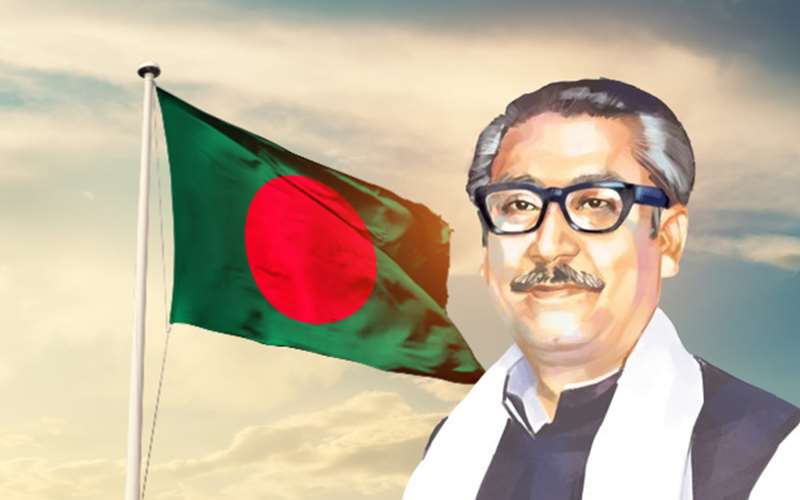Bangabandhu and Bangladesh two names one history

Bangabandhu and Bangladesh
March 26, 1971, marks a pivotal moment in the history of Bangladesh, symbolizing the nation's unwavering resolve for freedom and self-determination. This report delves into the events leading up to Bangladesh's declaration of independence, highlighting the courage and leadership of Father of the Nation Bangabandhu Sheikh Mujibur Rahman, and the international recognition and support garnered for Bangladesh's struggle for liberation.
Background
The landslide victory of the Awami League in the 1970 election set the stage for the liberation struggle of the Bengali nation. However, the aspirations of the Bengali people were met with oppression and violence by the Pakistani junta, culminating in the barbaric genocide plan named Operation Searchlight.
Declaration of Independence
In the face of imminent danger, Bangabandhu Sheikh Mujibur Rahman rallied the nation at a historic public rally on March 7, 1971, at Suhrawardy Udyan in Dhaka, laying the groundwork for the impending liberation war. Sensing the urgency, Bangabandhu hoisted the map-emblazoned flag of independent Bangladesh at his residence on March 23, 1971, signaling the nation's resolve for freedom.
On the night of March 25, 1971, Pakistani forces launched a brutal crackdown on the sleeping Bengalis, aiming to crush any aspirations for independence. Despite being forewarned of the impending invasion, Bangabandhu strategically refrained from initiating hostilities to avoid falling into the trap of separatism. However, as the Pakistani forces initiated the assault, Bangabandhu boldly declared independence in the early hours of March 26, 1971.
Broadcasting the Declaration
The declaration of independence was transmitted through various mediums, including wireless frequencies, foreign ships stationed in Chattogram port, and loudspeakers across the nation. Swadhin Bangla Betar Kendra commenced transmissions from Chattogram, broadcasting Bangabandhu's declaration to the world.
International Recognition
The declaration of Bangladesh's independence reverberated across the globe, with international media outlets and world leaders acknowledging and supporting the Bengali struggle for freedom. News of Bangladesh's independence was reported by newspapers from at least 25 countries, including the BBC and The New York Times. European leaders expressed solidarity with Bangladesh, recognizing Sheikh Mujibur Rahman's leadership and the resilience of the Bengali nation.
Legacy of Leadership
Bangabandhu Sheikh Mujibur Rahman's unwavering leadership and foresight paved the way for Bangladesh's independence, inspiring generations to uphold the values of freedom, justice, and sovereignty. His heroic stance against oppression and tyranny continues to resonate, serving as a beacon of hope and inspiration for Bangladeshis and freedom-loving people worldwide.
March 26, 1971, stands as a testament to the indomitable spirit of the Bengali nation and the visionary leadership of Bangabandhu Sheikh Mujibur Rahman. The declaration of Bangladesh's independence marked the beginning of a historic struggle for liberation, culminating in the birth of a sovereign nation. As Bangladesh commemorates its Independence Day, it pays homage to the sacrifices of those who fought for freedom and reaffirms its commitment to upholding the principles of democracy, equality, and justice.
Mostafizur Rahman,
Publisher and Editor- projonmokantho










পাঠকের মন্তব্য